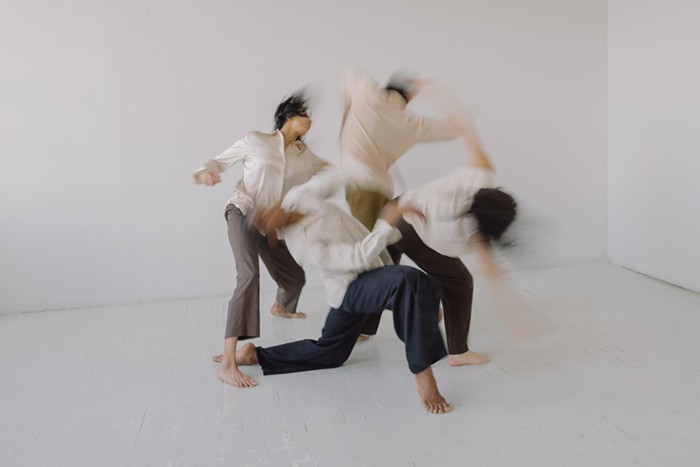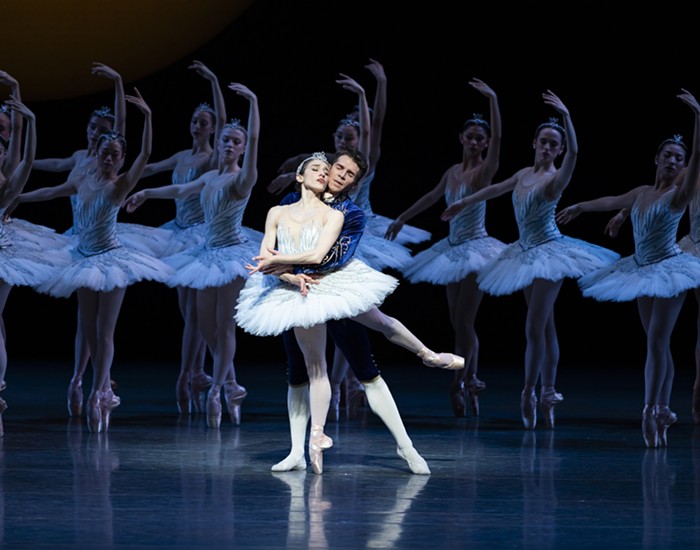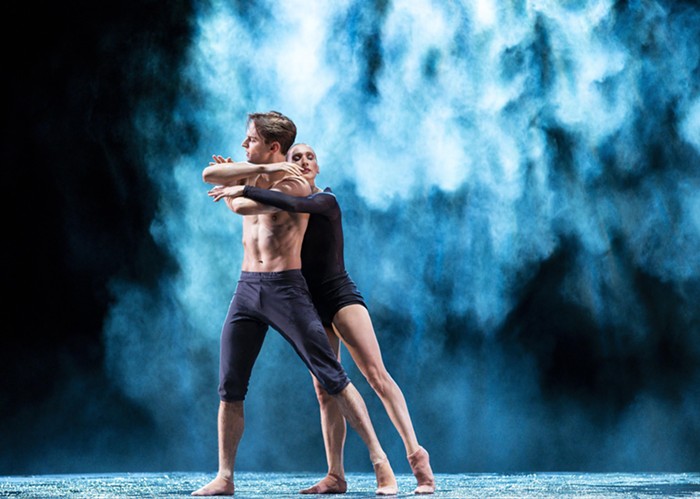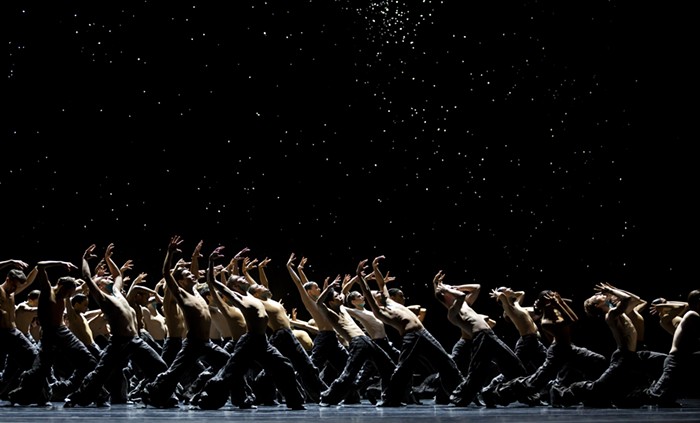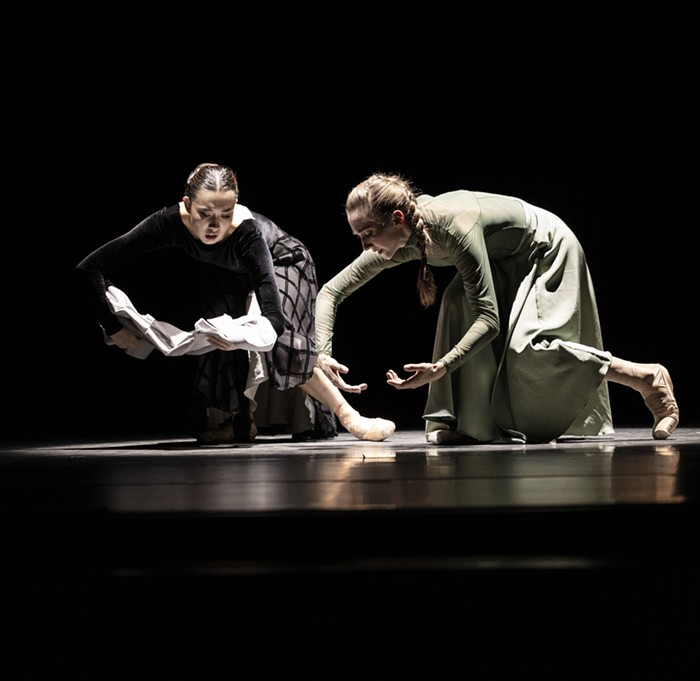
Next Friday and Saturday a group of artists working with Coriolis Dance will transform the Northwest Film Forum into a "living museum" called What Is Home An Obscure Kingdom an Opera Buffa It's Always You.
The exhibition, which was dreamed up and organized by multidisciplinary artist Christin Call, presents different ways of seeing the ideas of home and belonging, touching on one of the most complex and urgent issues facing Seattle.
I had not eaten lunch before meeting with Coriolis' Call at Cafe Pettirosso last week to talk about this ambitious and ultimately smart and tender project, so my first and most pressing questions involved its elaborate title: What Is Home An Obscure Kingdom an Opera Buffa It's Always You.
I've read some long, obscure, sort of nonsensical-at-first-blush titles in my days covering performance art, but this one might be the longest and obscurest title I've ever come across. Listening to Call tease out the meaning of it, however, filled me with wonder and revealed the connections she sees between personal and political constructions of "home."
The idea for the "assemblage," as she calls it, emerged from her residency with the Seattle Demo Project, an organization that connects artists with houses scheduled for demolition. Call says she spent hours writing and shooting video inside a 100-year-old Seattle home during that time. Squatters inhabited the place for ten months before she began her work there, and she was overwhelmed by the evidence of violence and sweetness she found around the house.
"There were holes bashed in the walls, major appliances toppled over and smashed in. But there were all these love notes people had written to each other on the walls," Call said. "All the intricacy of these things piled onto one another, this absurdness of this home being able to hold this violence, these sweet notes, the history of the construction of the building," these were the things that made her want to construct a title that piles up on itself the way What Is Home An Obscure Kingdom an Opera Buffa It's Always You does.
Fair enough! But that still doesn't explain what an "obscure kingdom" is, or what an obscure kingdom has to do with an opera buffa.
The introductory phrase, Call tells me, asks the project's central question: What is home? For Call, home is an abstract concept that has something to do with belonging. The next phrase, "an obscure kingdom," answers the question with a metaphor. "We all have this need to create meaning from our lives, to draw lines that connect all the dots, and so in my mind, the 'kingdom' is this elaborate thing we construct to house all these somewhat chaotic random things that somehow embody the notion of home," Call says. The phrase "an opera buffa" critiques the impulse to build that kingdom in the first place, referencing the comedic opera to suggest that our attempt to connect all the dots in truly meaningful ways is almost comically absurd, though uniquely human, which leads us to the sentimental-sounding final phrase, "it's always you."
"The ‘you’ in 'it's always you' is you as yourself, you in other people, and whether you feel like you belong in a home, which is determined by people, not by walls and doors," Call says.
Call's show is set to embody all of the complications and resonances in her title. She breaks the evening at Northwest Film Forum into two parts. Part I is a pre-show event full of interactive art, and Part II is a theatrical dance performance in one of NWFF's theaters.
The pre-show event serves as a prologue to the evening's main performance, and it'll run for about 1.5 hours before the official show starts. It's designed to get people thinking about themselves as a home situated inside of a neighborhood, and a neighborhood as a home that’s situated inside of a city, Call says.
In one part of the cinema, poet and longtime Seattle performer Vanessa DeWolf will mix fact with fiction as she tells the story of NWFF as a building—how it came to be, what was there before it, etc. In another part of the forum, audience members can draw their idea of themselves as a home and paste it, wallpaper-like, on a lean-to. One section features video and photography Call created inside the soon-to-be-demolished house. Meanwhile, two "docents" will patrol the floor, ferrying guests into another room where Coriolis dancers will run a short, interactive workshop on the metaphysically slippery process of creating a home. Other performers will serve as active window displays, standing in the windows and performing for anyone who happens to walk by the Forum.
You can stay in the prologue area for as long as you'd like, but you can probably get through it in 30 to 45 minutes. At 8:00 p.m., audience members move into a theater for the main event, a semi-sci-fi theatrical dance performance about a new architectural discovery. The docents start off the story, quoting Shakespeare as they describe a house found underground, buried by an unknown civilization—or maybe aliens?! Then, five characters from five different socio-economic backgrounds emerge from the wings and dance around the house. One character has a lot of power and no scruples, another character has lots of power and some scruples, a third character has some power and is generally ambivalent, a fourth character has the gift of expression, and the fifth character has no power.
"The three arcs of the story are an attempt to lift up that last person, to see if it's possible for that person to receive that help," Call says. "Somebody with good intentions tries to help that person but ends up putting them down. What do you do after that? Some person who just wants to build their next big luxury condo tries to get involved, and the big question is what is their role? Do they have a role in helping? Probably! And somebody who has a gift of expression—what is their role?"
Good questions, all. Finding out how Call and her crew attempt to answer them might help you see Seattle's homelessness crisis from a new angle.
Hopefully one of those angles is "TAX THE RICH!" But my guess is the main angle might be something more like: there but for the grace of god go I.

